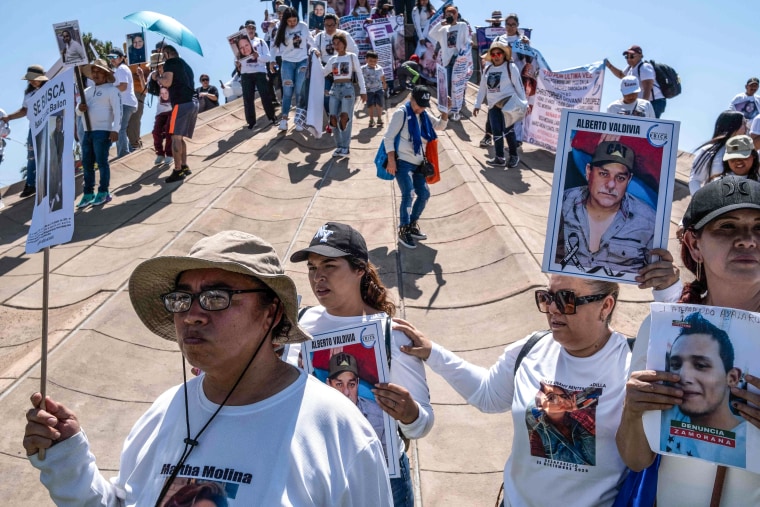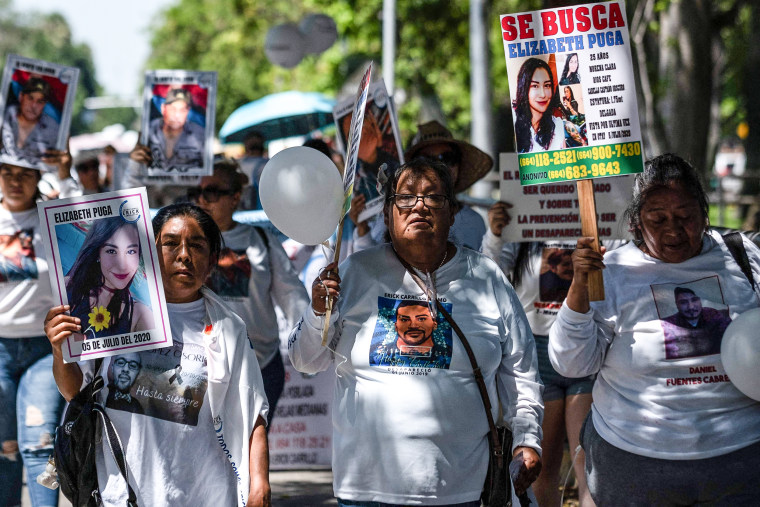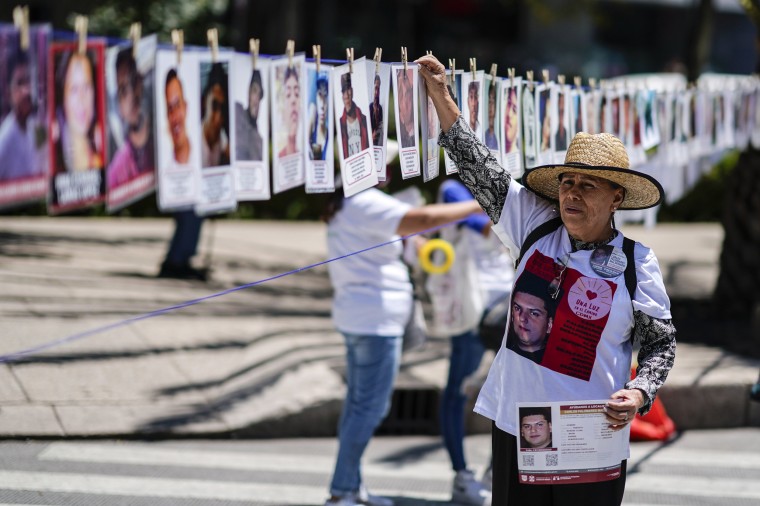MEXICO CITY — Mothers of some of 111,000 people who have disappeared in Mexico over decades of violence on Wednesday marked the International Day of the Disappeared with protests and demands that the government do more to locate their loved ones.
Most of those missing are believed to have been abducted by drug cartels or kidnappers, and their bodies buried in shallow graves or burned.
Some marching down Mexico City’s main boulevard were also protesting an apparent government effort to minimize the problem.
About 200 protesters — almost all women — chanted: “Where are they? Where are our children?”
Edith Pérez Rodríguez, one of the marchers, wore a T-shirt with photos of her two sons, Alexis and José Arturo Domínguez Pérez. They vanished without a trace a decade ago in the northern state of San Luis Potosi.
Lack of funding and manpower have left police and prosecutors unable to conduct even the most basic searches — leaving it to volunteer groups made up of mothers, who often walk through suspected body dumping grounds with shovels, plunging long steel rods into the earth to detect the odor of cadavers.

“If we don’t search for our children, nobody will do it,” said Pérez Rodríguez.
President Andrés Manuel López Obrador has claimed the number of missing has been inflated and that many may have returned home and not bothered to notify authorities. He has launched a massive door-to-door effort by military and unqualified civilian personnel asking residents whether their missing relatives have returned and checking their names against vaccination rolls.
Activists say that money and effort could be better spent looking for the missing, or at least their remains.
“What are they going to do,” said Pérez Rodríguez, noting that each agent has to handle about 250 missing persons cases, leaving them no time to really investigate.
“That is why we are here,” she said, “to tell the president these numbers are not inflated. This is the reality,” she said, pointing to dozens of other protesting mothers.
Similar marches were held in several other cities in Mexico.

Irma Guerrero has been looking for her son, David, who disappeared in San Luis Potosi on Jan. 13, 2022. Since then, she said she has received “nothing, not from anyone” in the way of help.
Asked about the resignation of Mexico’s top search official, Karla Quintana, last week, Guerrero said she did not care. “None of the officials have helped us.”
“Only the bad guys know, and they don’t help us,” Guerrero said.
Quintana, who did not explain the motives for her resignation, reportedly objected to sending unqualified personnel around to interview victims’ families. Such questioning of already-traumatized families could be damaging, activists say.
Few doubt there may be people listed as missing who have returned home. But many also believe that a similarly large number of missing people in Mexico’s most violent regions may never have been reported by their relatives, either because of fear of reprisals or distrust of authorities.
That distrust is widespread.
Jessica Martinez Cervantes is still looking for her brother Esteban, who also went missing in San Luis Potosi in July 2020.
“Nothing, absolutely nothing,” she said when asked what help she has received from the government.
